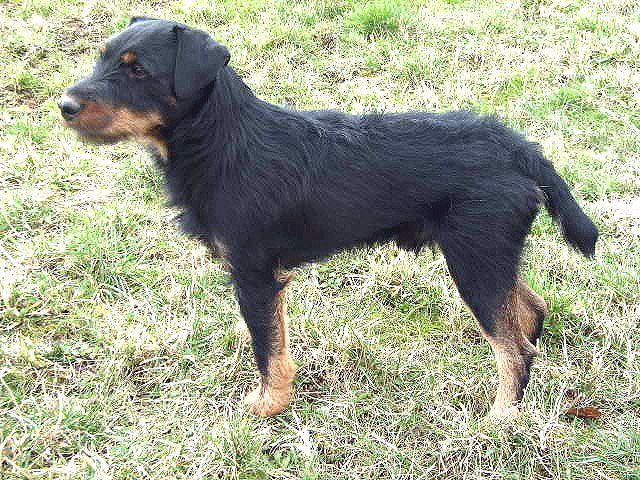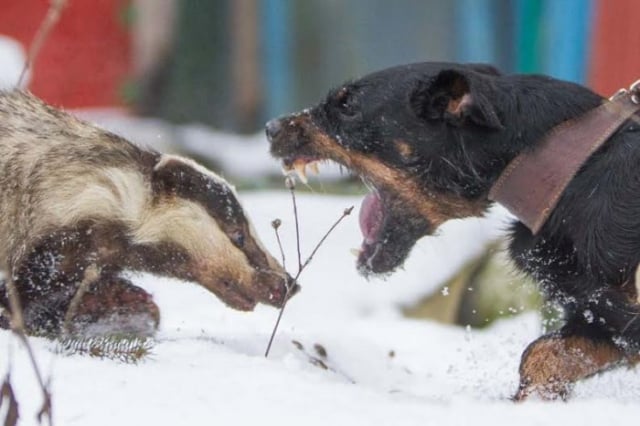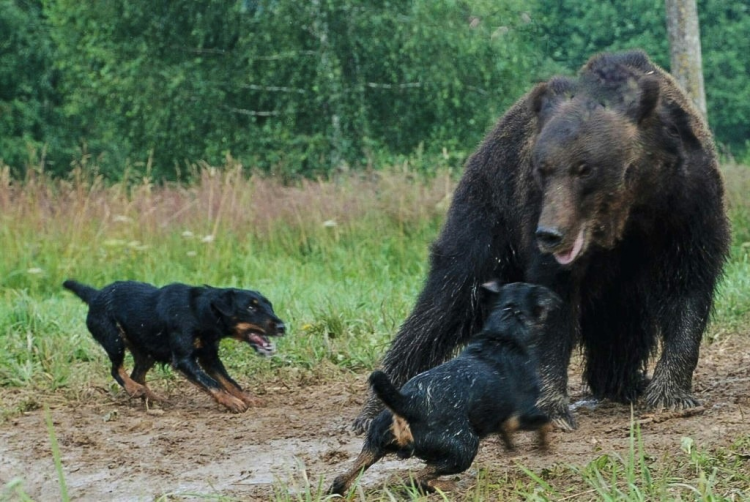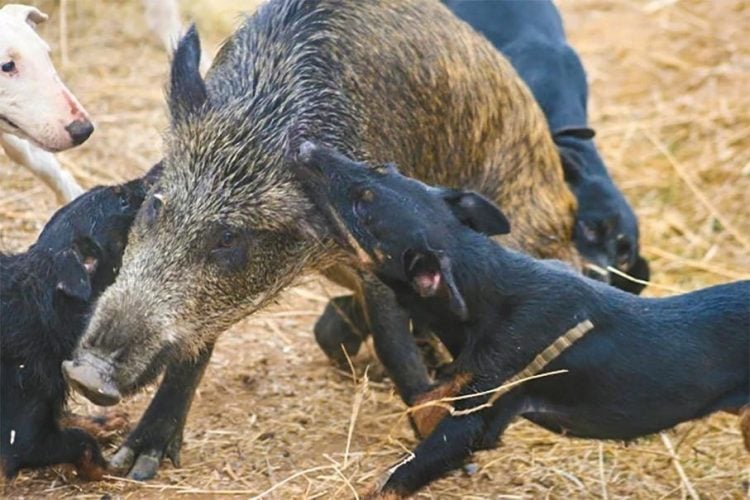
The Jagdterrier – A German-Engineered Hunting Superdog
Published on November 18, 2020 at 12:26 PM by Mc Noel Kasinja
The Germans are known for their machine engineering, but it turns out that they’re not to shabby when it comes to genetic engineering either, and the jagdterrier, a living breathing hunting machine, is a perfect example.
Literally German for “hunt terrier”, the jagdterrier is a hunting dog developed in Germany between the two world wars, in a time when German nationalism and feeling of superiority were at an all-time high. Hunting cynologists Walter Zangenberg, Carl Erick Grunewald, and Rudolph Friess decided that the popular Fox Terrier was being bred more as a show dog, and less as an efficient hunting machine, so they started working on a new breed of terrier, one that would be superior to British and American breeds.
The foundation for what would soon be known as the jagdterrier was the purebred fox terrier, but the rest of the mix used to create it remains a mystery. Some breed historians believe the Welsh Terrier, and Old English terrier were also used, while others believe Teckels and Pinchers were also used during the massive breeding program. The exact genetic “recipe” remains a mystery, but we do know that the selection criteria during the development of the breed was very stringent, with thousands of specimens that didn’t fit the breeders’ vision being culled.

In the end, the jagdterrier turned out to be a nearly perfect hunting machine. Its main characteristics were exceptional physical qualities, great instinct, ruthlessness, perseverance in pursuing its prey, fearlessness, and a capacity to take on prey much larger than itself”.
 Unfortunately, WW2 took a heavy toll on the jagdterrier, and only a few decades after its development, there were only 32 jagdterriers from nine litters left in all of Germany. Luckily, the breed recovered, and at the World Dog Show in 1965 in Brno, the 29 jagdterriers surpassed all other breeds.
Unfortunately, WW2 took a heavy toll on the jagdterrier, and only a few decades after its development, there were only 32 jagdterriers from nine litters left in all of Germany. Luckily, the breed recovered, and at the World Dog Show in 1965 in Brno, the 29 jagdterriers surpassed all other breeds.

Relatively small and compact (33 to 40 centimeters at the shoulders, and 7.5 to 10 kg heavy), the jagdterrier is an exceptional hunting dog, well-suited primarily for hunting under the ground and as a flushing dog, but also able to take on prey much larger than itself, especially when working in teams of 3-4 dogs. The Jagdterrier is a small dog that is absolutely convinced that it is a big dog. It will take on boars and even bears with little concern for its own safety.
A pack of 3 to 5 jagdterriers can overcome even a large boar, but it’s a dangerous endeavor that often gets members of the attacking team killed. However, if they do survive their injuries, these tenacious canines are willing to get up and re-enter the fray as soon as they can get up after getting patched up. Their tolerance for pain is legendary as well, with vets and hunters telling stories of jagdterrier getting stitched up without any pain killers.
Often described as “dynamite in a small package”, the jagdterrier is sometimes raised as a pet, but experts warn that owners should always remember that it was engineered as a hunting dog. Jagdterriers can make good pets, but they require careful training, and will only listen to the commands of their owner. They tend to be very aggressive towards other dogs.


